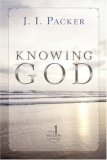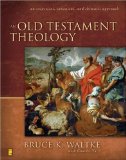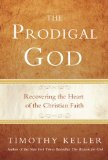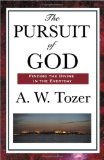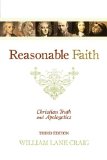Michael Coogan, an OT lecturer at Harvard Divinity School, has recently written an opinion article ostensibly exposing some “shocking” values espoused by the Bible. While Coogan makes some valid points in this short essay, for the most part, I found his analysis to be a mixed bag at best.
As for the good, Coogan makes a wonderful suggestion that is essentially a call to good exegesis and hermeneutics:
Individual biblical texts should not be appealed to selectively: Such cherry-picking is all too easy because of the nature of the Bible as a multi-authored book. Rather, as with another formative text, the Constitution, one needs first to understand it historically — what did its words mean when they were written — and then attempt to determine what its underlying values are, not just what it says in a specific passage.
One wonders then, why Coogan is unable to take his own advice earlier in the essay, when he talks about issues like slavery, homosexuality and abortion. In each of these, he tends to fall under his own judgment by being overly selective or superficial.
Coogan claims early in his essay that “the Bible itself makes clear [that] its authors were human beings.” Here we have an error of omission, because the Bible also makes clear that its origin is ultimately divine (e.g., 2 Tim 3:16), unless we exclude the countless times (well over 500) formulae such as “the Lord said,” or “the word of the Lord came to…” introduce a text. Coogan misses the fact that, much like Christ, the Bible understands itself as both human and divine.
Coogan continues his selectivity regarding slavery. Indeed, supporters of slavery may have used the Bible to support their view, but so did the abolitionists. What of the slave trade if William Wilberforce were never given a Bible? What of William Lloyd Garrison’s (thoroughly Christian) first abolitionist address at Park Street Church? It is so easy to stir up vitriol over human rights issues while forgetting that their origins in Western culture are actually Biblical. The notion that all people have intrinsic worth and dignity does not have its roots in ancient Hellenism, or even the Enlightenment. As David Bentley Hart so lucidly illustrates in Atheist Delusions (review here), Christianity is responsible for shaping the West with these ideals.
While we’re on the topic of slavery, if I may digress, we must remember that because of our own history, Biblical slavery is often thought to be equivalent to the African slave trade of the 18th and 19th centuries. This post cannot adequately discuss the Biblical view of slavery. I will remark, however, that Biblical slavery knows countless differences over and against the slavery in our own recent history. Not all slavery was cruel, forced, unremitting labor, and numerous Biblical injunctions enforced that. The starting point to the discussion of slavery, then, oughtn’t presuppose an ancient Near-Eastern Simon Legree capriciously and viciously abusing slaves while enjoying God’s approval. The text of the Bible, and the careful cultural exegesis that should accompany it, simply does not allow it.
With homosexuality, Coogan makes the common mistake of applying the same hermeneutics to laws governing diet and dress, rather than understanding the function and intent of these laws in their particular place in Scripture. Moreover, his hermeneutics are embarrassing, viz., we don’t like these laws any more, therefore we should reconsider them. Coogan takes the stance that often under-girds anti-Bible rhetoric: He stands in judgment over it. If we are to take the Bible on its own terms, it should judge us. If not, then it is effectively impotent to tell us anything at all, since we get to determine for ourselves what of it is good or bad. This is the crucial first step in approaching the book; our interpretive outcome hinges upon it. If we understand the Bible as an authority above ourselves, then it doesn’t matter if its teaching runs against our own opinions or cultural milieu. I cannot reject a teaching of the Bible simply because I do not like it, or because it is out of vogue. If that is my posture, why bother read it? I’m determining right and wrong for myself, whether the Bible agrees or disagrees is of no consequence.
Coogan ultimately claims that the Bible’s authority rests on its underlying message; “equal, even loving, treatment of all persons, regardless of their age, gender, socio-economic status, ethnicity or sexual orientation.” In other words, the Bible has authority because its underlying message conforms to modern sensibilities. Moreover, he completely misses the point, because the underlying message, the meta-narrative of the Bible, is not some trite (however agreeable) ethical mandate. It is not simply a collection of commands to obey unto salvation. It is the message of a good, just, loving God, who redeems a sinful, fallen world through the death and resurrection of His Son. To read the Bible and miss Jesus is to miss the point.
In the end, Coogan rightly accuses too many public figures for being lazy (or unwarranted) in their application of Biblical texts. His call to uncover the original meaning of a text before applying it to our lives today is right on. It seems, however, that he has missed his own mark, ultimately missing the point all together.


